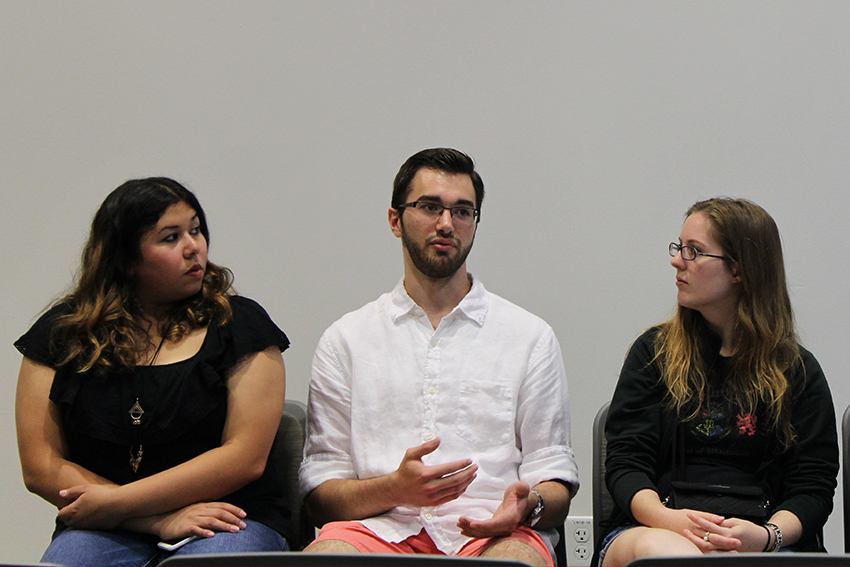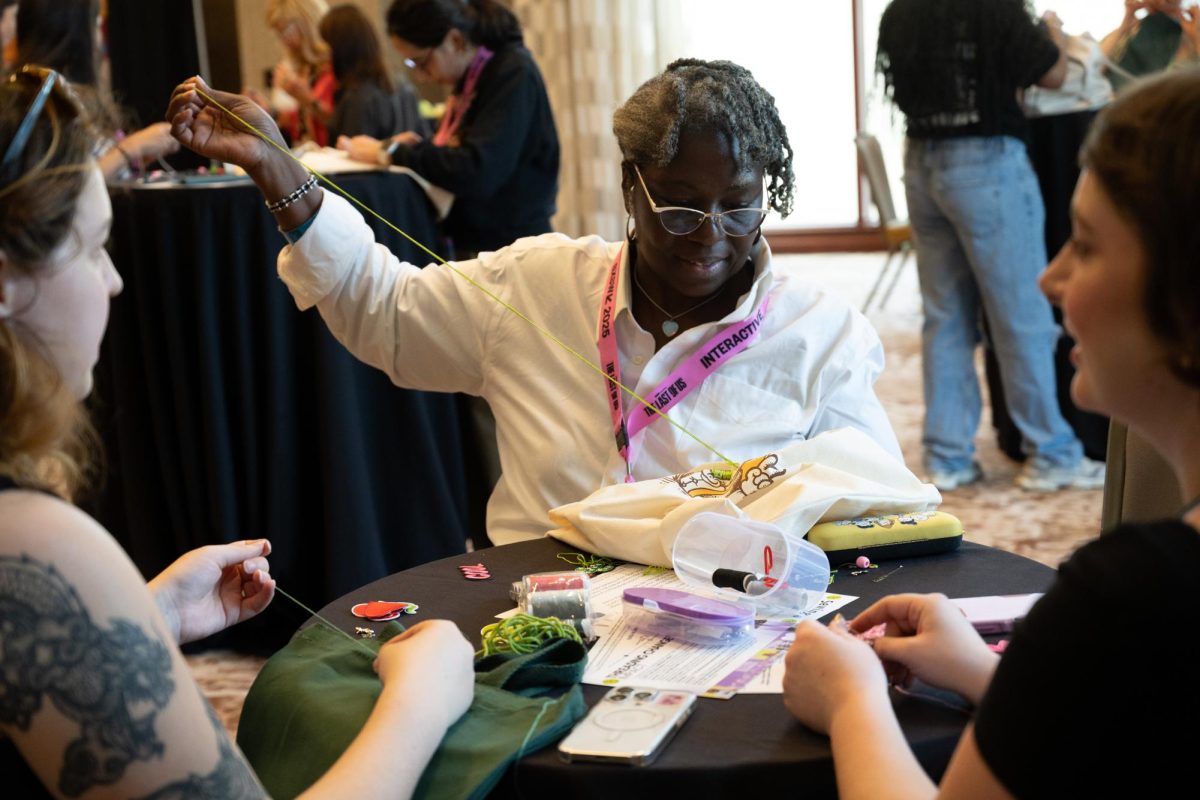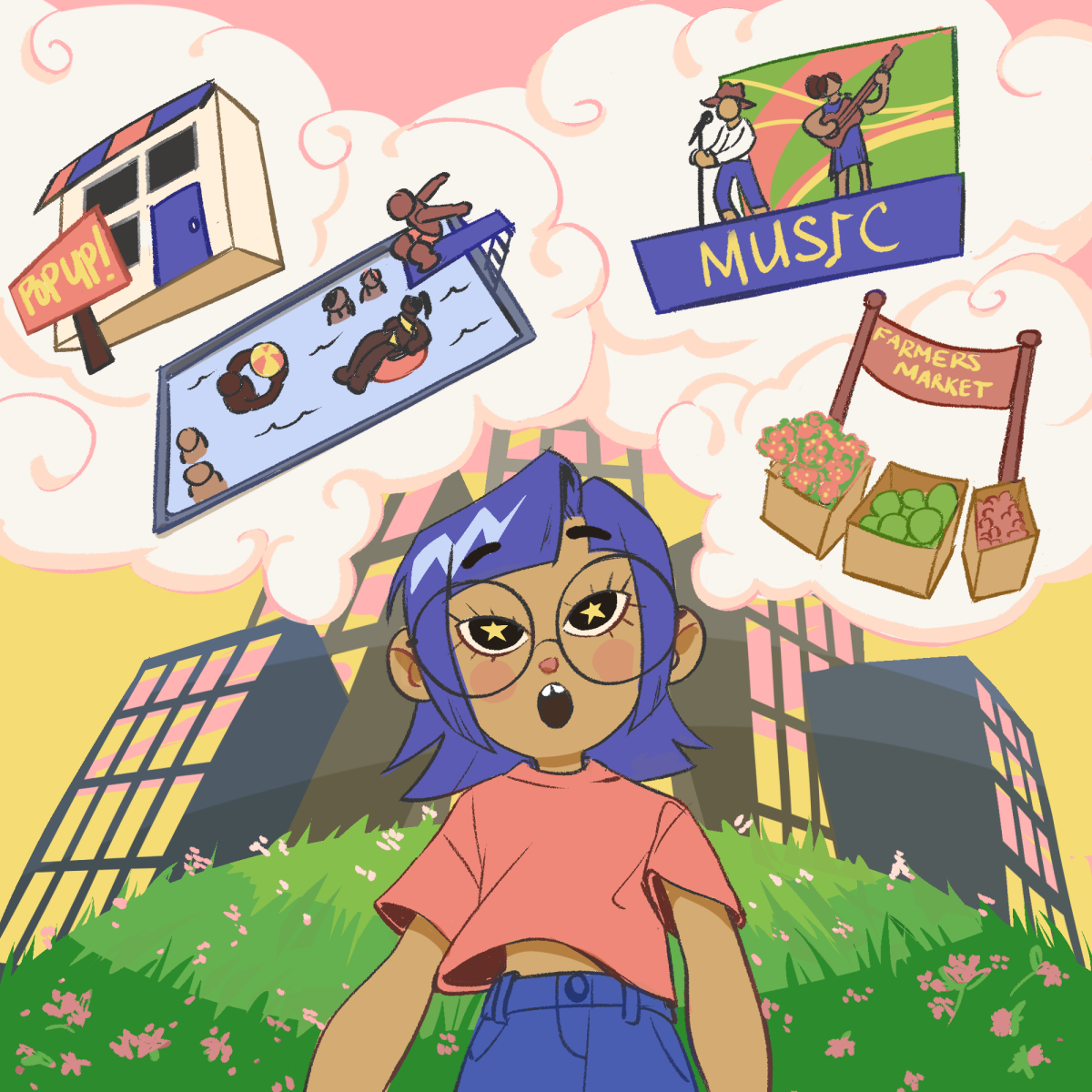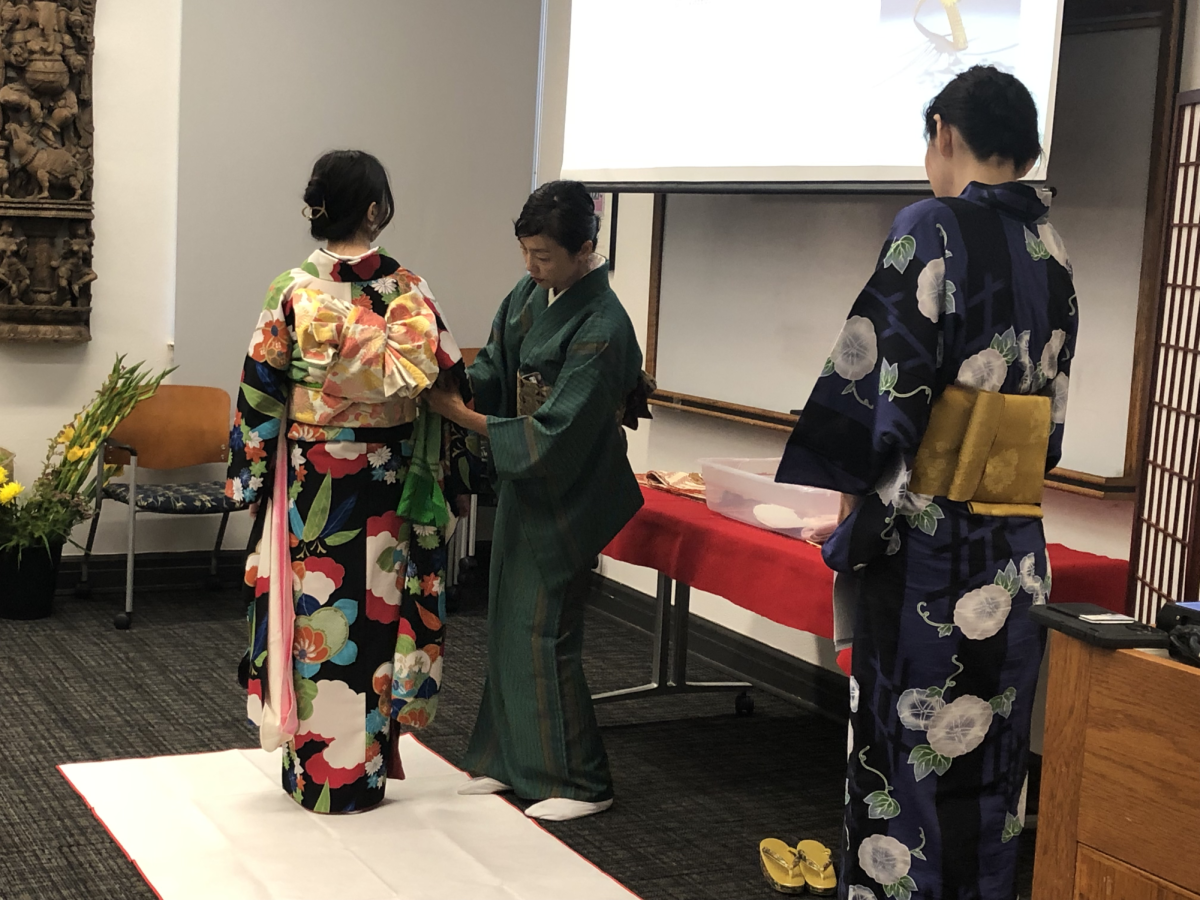Out of all the sights in Europe, history senior Mandi Faulkner looked forward to seeing the Eiffel Tower the most. But when she arrived at its base, she was turned away because of her cerebral palsy and crutches.
“They told me ‘We do not let disabled people go to the top of the Eiffel Tower,’” Faulkner said. “I went up there [anyway.] It was really cloudy, and I couldn’t see very much at all, but I had made it. That was my big, triumphant moment.”
Planning for an extended stay in a foreign country requires extensive preparation and coordination. But for students like Faulkner, planning for travel can turn into a logistical nightmare. Students with disabilities must take into account their host country’s civil rights laws, level of accessibility and cultural attitudes toward disability. Services for Students with Disabilities held a panel Thursday where students with disabilities who studied abroad shared their experiences and offered advice.
Linguistics junior Justin Roberson studied abroad in Shanghai last summer. Roberson, who has narcolepsy, said students should research country’s attitudes toward disabilities before making a commitment to a program.
“If you were to go to a country like China or Vietnam, where they still look down on people with physical disabilities, it’s going to be a rough time for you,” Roberson said. “You need to be aware of how that culture looks at people with disabilities and how they handle it.”
Even if a program makes accommodations for students, slip-ups can still happen where students are excluded from activities. Faulkner said a trip to a Dutch island turned into a weekend indoors when she discovered the island was not accessible.
“I just could not do anything,” Faulkner said. “Have you ever tried to walk with crutches on the beach? It’s impossible. I was like, ‘This is not going to be fun for me.’ I sat in the cabin and read a book for two days.”
Psychology junior Jasmine Bell, who was not on the panel, spent the summer in Beijing. Bell has spina bifida and like Faulkner, has limited mobility. But for Bell, the stares she received from locals were the hardest thing she dealt with abroad.
“A lot of people would look at me weird,” Bell said. “I felt like it was because I was walking with a cane.”
Faulkner said different cultural attitudes toward disabilities were difficult to handle at times, but the solidarity she found among other disabled people made the trip worth it.
“Disabled people [there] were extremely warm to me,” Faulkner said. “I encountered a man in the street who was in a wheelchair, and he came up to me and hugged me and kissed me and shook my hand. I don’t think I’ve been greeted that warmly by anyone, ever.”
Despite certain road bumps, Roberson and Faulkner both encourage other students with disabilities to venture abroad. Roberson said learning to adapt to a new environment gave him confidence that years of struggling in school never did.
“It really is possible,” Roberson said. “Just go. Just be aware of everything, but it’s definitely not impossible. There’s a lot of things that will come up for you studying abroad that will actually help you improve your quality of life with a disability that you might not really expect.”





















